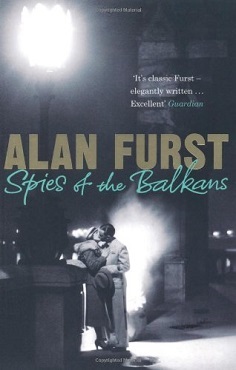Kelly Sandoval, “The One They Took Before.” Shimmer #22, November 2014.
I think this is going on my Hugo short story shortlist, an urban fantasy story that looks at what happens after you get back from fairy land. It reminded me a bit of Jo Walton’s Relentlessly Mundane, about the same general emotions of loss and bitterness, but in a different key so to speak.
John Scalzi, “Unlocked: An Oral History of Haden’s Syndrome.” Tor.com, May 13, 2014.
Scalzi takes the oral history format that’s become popular in the last couple of years to remember anything from the 25th anniversary of Ghostbusters to the beginning of the AIDS epidemic in America in the early eighties and uses it to chronicle the spread of his fictional disease from his novel Locked In. A bit of a tear jerker in places.
Some of the developments seem to have gone a bit too quick or easy to be totally believable, but that’s more of a question of how much room there is in a novella. It’s funny to think that Scalzi has basically taken the exposition from his novel and reworked it into this.
Veronica Schanoes, “Among the Thorns.” Tor.com, May 7, 2014.
I’ve mentioned before I don’t like fairy tale inspired fantasy, but once again I have to make an exception. Apparantly there was a Brothers Grimm fairy tale in which a lowly peddler tricks an evil Jew and robs him of his money, then kills him by dancing him to death in a thorn bush. Veronica Schanoes uses this as the base of her story and puts it in the context of the actual antisemitism and brutality against Jews as happened in the period the fairy tale was roughly set in. Then she takes the daughter of the murdered Jew and let her take her revenge on the people who killed her father.
There are some horrible scenes in the first paragraphs of the story, but the violence isn’t gratitious. What I liked was this was both brutal and humane; the people who killed the protagonist’s father aren’t nazi caricatures but ordinary human beings and way Schanoes described the crowd who watched his death reminded me also of lynching mobs from American history. Ordinary, decent people can take great delight in watching the other being tortured and murdered in the right circumstances and Schanoes isn’t shy to point this out. But it’s not a story totally devoid of hope and decency. Revenge is taken but not total, Itte is too human to be as horrible as the tormentors of her father were.
Well done. On the Hugo ballot it goes.
